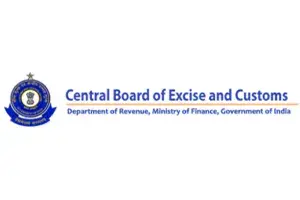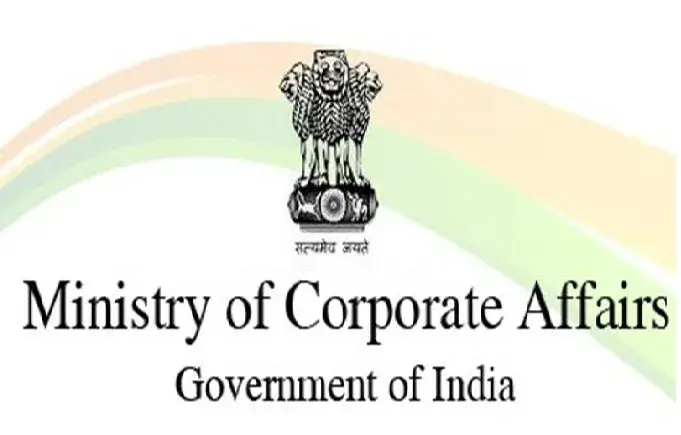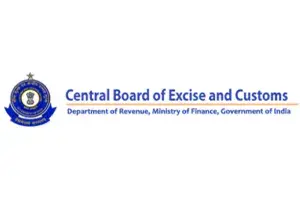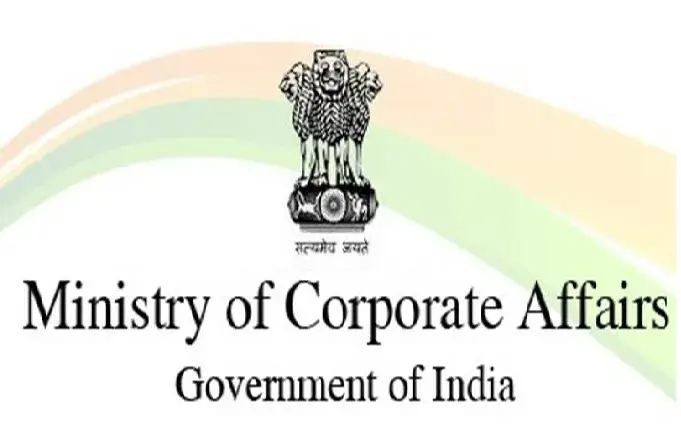India: Custom Rules Under ‘Make in India’ abused again thanks to Cheap Imports entering via ASEAN Trade Pact

Source: www.cbic.gov.in
‘Make in India’ the most significant project of the Indian Government may hit a roadblock, courtesy cheap imports entering via ASEAN trade pact. These cheap products are entering inside Indian market by misusing the free trade agreement with the Association of South East Asian Nations. The free trade pact between India and ASEAN allows import of goods at zero or concessional customs duty from a member-country if reasonable value addition has been carried out there.
As per the reports, the issue came into limelight after the officials found out about the entry of goods such as mobiles from China via an ASEAN member country without any substantial value addition, in violation of rules of origin. The Ministry of Electronics & Information Technology wrote to the Finance Ministry pointing at the sudden influx of mobile phones from Malaysia.
Imports from Malaysia climbed 49% to INR 140 billion (USD 2 billion approx..) in April-May from INR 95 billion (USD 1.36 billion approx.) in the same period last year. Total imports from ASEAN nations have risen to INR 33 trillion (USD 47.1 billion approx.) in FY18 from INR 28 trillion (USD 41.3 billion approx.) in FY14.
These imports are happening after July 2017, when the customs duty on smartphones, automobile components, television LED/LCD and OLED panels, fruits were increased. According to a report in the newspaper daily ‘Economic Times’, the Directorate of Revenue Intelligence, or DRI, is enquiring into imports of mobile phones and other telecom and IT equipment under the FTA route after allegations of abuse. ‘The agency has been asked to look into the issue’ said a government official privy to the development.[1]
[1]https://economictimes.indiatimes.com/news/economy/foreign-trade/cheap-
imports-entering-via-asean-trade-pact-may-hit-make-in-
india/articleshow/65392859.cms
India: Govt. tells bankers to check NPA frauds or be held guilty

Source: www.ibbi.gov.in
The Indian banking sector is being faced by the challenges posed by the non-performing assets (hereinafter referred to as “NPA”) which are the loans or advances for which the payment remains outstanding. The mounting number of NPAs reaching to a value as high as INR 8,00,000 Crore is raising great concern for the Government which is strategizing appropriate devices to tackle this situation.
Latest approach
The newest devised formula to deal with the problem of increasing NPA, the Government issued a stern warning against the banking heads- Chief Executive Officers to be alert and agile while checking for fraud in case of all the NPA accounts exceeding INR 50 Crore. In the event of failure to exercise caution as stated above, such officers shall face charges of criminal conspiracy under Section 120B of the Indian Penal Code, 1860. The Bankers would be held liable in case they are unable to report the fraud being committed requiring them to be extra cautious in respect of suspicious transactions involving diversion of funds which are later discovered by the investing agencies.
Criminal Charges
According to the provisions of Section 120B of the Indian Penal Code, 1860, whoever is a party to a criminal conspiracy shall be punished with imprisonment of either description for a term not exceeding six months, or with fine or with both.
Conclusion
The Reserve Bank of India had identified 12 stressed accounts in June 2017, each having more than INR 5,000 crore of outstanding loans and amounting for 25% of total NPAs of banks, for immediate referral under the Insolvency and Bankruptcy Code. With a view to reduce the NPAs in the banking sector, the Government has also imposed the liability of criminal charges on the bankers as a precautionary measure to ensure that they report any doubtful account handling which come under the scanner of the investing agencies.
India: Insolvency and Bankruptcy Code (Second Amendment) 2018

Source: www.ibbi.gov.in
The Insolvency and Bankruptcy Code, 2016 (hereinafter referred to as “the Code”) undergoes yet another amendment to ensure enforcement of the provisions of the Code aiming towards the fulfilment of its objective of time-bound resolution process. These amendments will facilitate effective implementation and obtain desired results. The highlights of a few provisions in the said regard are:
- The term corporate guarantor has been defined as a corporate person who is the surety in a contract of guarantee to a corporate debtor under a new sub-section 5A of Section 5.
- Financial debt having commercial effect of a borrowing shall now include any amount raised from an allottee under a real estate project as per the explanation to Section 5 (8) (f).
- Insolvency commencement date is the date of admission of an application for initiating corporate insolvency resolution process by the Adjudicating Authority. However, in case where the interim resolution professional has not been appointed, the insolvency commencement date shall be the date on which such person is appointed by the Adjudicating Authority.
- A new provision i.e. Section 5 (24A) has been introduced to define “related party”, in relation to an individual, to be –
- a person who is a relative of the individual or his/ her spouse;
- a partner of a limited liability partnership, or a limited liability partnership or a partnership firm, in which the individual is a partner;
- a person who is a trustee of a trust in which the beneficiary of the trust includes the individual, or the terms of the trust confers a power on the trustee which may be exercised for the benefit of the individual;
- a private company in which the individual is a director and holds along with his relatives, more than two per cent. of its share capital;
- a public company in which the individual is a director and holds along with relatives, more than two per cent. of its paid-up share capital;
- a body corporate whose board of directors, managing director or manager, in the ordinary course of business, acts on the advice, directions or instructions of the individual;
- a limited liability partnership or a partnership firm whose partners or employees in the ordinary course of business, act on the advice, directions or instructions of the individual;
- a person on whose advice, directions or instructions, the individual is accustomed to act;
- a company, where the individual or the individual along with its related party, own more than fifty per cent. of the share capital of the company or controls the appointment of the board of directors of the company.
- The amendment incudes within the ambit of the term financial creditors in Section 7 any other person on behalf of the
financial creditor, as may be notified by the Central Government. - The operational creditor shall be required to submit additional documents as stated below along with the application-
- a copy of any record with information utility confirming that there is no payment of an unpaid operational debt by the corporate debtor, if available; and [Section 9(3) (d)]
- any other proof confirming that there is no payment of an unpaid operational debt by the corporate debtor or such other information, as may be prescribed. [Section 9(3) (e)]
- A. As per the amendment [Section 10(3)], the
corporate applicant shall, along with the application, furnish—- the information relating to its books of account and such other documents for such period as may be specified;
- the information relating to the resolution professional proposed to be appointed as an interim resolution professional; and
- the special resolution passed by shareholders of the corporate debtor or the resolution passed by at least three-fourth of the total number of partners of the corporate debtor, as the case may be, approving filing of the application.
B. The Adjudicating Authority shall, within a period of fourteen days of the receipt of the application by the corporate applicant accept/ reject the same if the same is complete and no disciplinary proceeding is pending against the proposed resolution professional [Section 10(4)].
- The resolution professional shall file an application to the Adjudicating Authority to extend the period of the corporate insolvency resolution process beyond one hundred and eighty days, if instructed to do so by a resolution passed at a meeting of the committee of creditors by a vote of sixty-six per cent. of the voting shares Section 12(2).
- As per the new provision Section 12A, the Adjudicating Authority may allow the
withdrawal of application admitted under section 7 or section 9 or section 10, on an application made by the applicant with the approval of ninety per cent. voting share of the committee of creditors, in such manner as may be specified. - As per Section 14(3), the provisions of Section 14(1) whereby the
Adjudicating Authority may by order declare moratorium shall not be applicable–- such transaction as may be notified by the Central Government in consultation with any financial regulator;
- a surety in a contract of guarantee to a corporate debtor.
- The term of the interim resolution professional shall continue till the date of appointment of the resolution professional under section 22 not being restricted to mere thirty days Section 16(5).
- The interim resolution professional vested with the management of the corporate debtor shall be responsible for complying with the requirements under any law for the time being in force on behalf of the corporate debtor as per the new provision [Section 17(2)(e)].
- A new provision Section 21 (6A) has been inserted where a financial debt—
- is in the form of securities or deposits and the terms of the financial debt provide for appointment of a trustee or agent to act as authorised representative for all the financial creditors, such trustee or agent shall act on behalf of such financial creditors;
- is owed to a class of creditors exceeding the number as may be specified, other than the creditors covered under clause (a) or sub-section (6), the interim resolution professional shall make an application to the Adjudicating Authority along with the list of all financial creditors, containing the name of an insolvency professional, other than the interim resolution professional, to act as their authorised representative who shall be appointed by the Adjudicating Authority prior to the first meeting of the committee of creditors;
- is represented by a guardian, executor or administrator, such person shall act as authorised representative on behalf of such financial creditors,
and such authorised representative under clause (a) or clause (b) or clause (c) shall attend the meetings of the committee of creditors, and vote on behalf of each financial creditor to the extent of his voting share.
- under clauses (a) and (c) of sub-section (6A), if any, shall be as per the terms of the financial debt or the relevant documentation; and
- under clause (b) of sub-section (6A) shall be as specified which shall form part of the insolvency resolution process costs.
Save as otherwise provided in this Code, all decisions of the committee of creditors shall be taken by a vote of not less than fifty-one per cent. of voting share of the financial creditors: Provided that where a corporate debtor does not have any financial creditors, the committee of creditors shall be constituted and shall comprise of such persons to exercise such functions in such manner as may be specified.
- The authorised representative under sub-section (6) or sub-section (6A) of Section 21 or sub-section (5) of Section 24 shall have the right to participate and vote in meetings of the committee of creditors on behalf of the financial creditor he represents in accordance with the prior voting instructions of such creditors obtained through physical or electronic means.
- It shall be the duty of the authorised representative to circulate the agenda and minutes of the meeting of the committee of creditors to the financial creditor he represents.
- The authorised representative shall not act against the interest of the financial creditor he represents and shall always act in accordance with their prior instructions: Provided that if the authorised representative represents several financial creditors, then he shall cast his vote in respect of each financial creditor in accordance with instructions received from each financial creditor, to the extent of his voting share: Provided further that if any financial creditor does not give prior instructions through physical or electronic means, the authorised representative shall abstain from voting on behalf of such creditor.
- The authorised representative shall file with the committee of creditors any instructions received by way of physical or electronic means, from the financial creditor he represents, for voting in accordance therewith, to ensure that the appropriate voting instructions of the financial creditor he represents is correctly recorded by the interim resolution professional or resolution professional, as the case may be.
Explanation. —For the purposes of this section, the “electronic means” shall be such as may be specified.
As per the revised provisions of Section 29A, a person shall not be eligible to submit a resolution plan, if such person, or any other person acting jointly or in concert with such person –
- has been convicted for any offence punishable with imprisonment— (i) for two years or more under any Act specified under the Twelfth Schedule; or (ii) for seven years or more under any other law for the time being in force: Provided that this clause shall not apply to a person after the expiry of a period of two years from the date of his release from imprisonment:
- has been a promoter or in the management or control of a corporate debtor in which a preferential transaction, undervalued transaction, extortionate credit transaction or fraudulent transaction has taken place and in respect of which an order has been made by the Adjudicating Authority under this Code
Provided that such transaction has taken place prior to the acquisition of the corporate debtor by the resolution applicant pursuant to a resolution plan approved under this Code or pursuant to a scheme or plan approved by a financial sector regulator or a court, and such resolution applicant has not otherwise contributed to the preferential transaction, undervalued transaction, extortionate credit transaction or fraudulent transaction
the Limitation Act, 1963 shall, as far as may be, apply to the proceedings or appeals before the Adjudicating Authority, the National Company Law Appellate Tribunal, the Debt Recovery Tribunal or the Debt Recovery Appellate Tribunal, as the case may be.
- Notwithstanding anything to the contrary contained in this Code, the provisions of clauses (c) and (h) of section 29A shall not apply to the resolution applicant in respect of
corporate insolvency resolution process of any micro, small and medium enterprises. - Subject to sub-section (1), the Central Government may, in the public interest, by notification, direct that any of the provisions of this Code shall— (a) not apply to micro, small and medium enterprises; or (b) apply to micro, small and medium enterprises, with such modifications as may be specified in the notification.
- A draft of every notification proposed to be issued under sub-section (2), shall be laid before each House of Parliament, while it is in session, for a total period of thirty days which may be comprised in one session or in two or more successive sessions.
- If both Houses agree in disapproving the issue of notification or both Houses agree in making any modification in the notification, the notification shall not be issued or shall be issued only in such modified form as may be agreed upon by both the Houses, as the case may be.
- The period of thirty days referred to in sub-section (3) shall not include any period during which the House referred to in sub-section (4) is prorogued or adjourned for more than four consecutive days.
- Every notification issued under this section shall be laid, as soon as may be after it is issued, before each House of Parliament.
Explanation. —For the purposes of this section, the expression “micro, small and medium enterprises” means any class or classes of enterprises classified as such under sub-section (1) of section 7 of the Micro, Small and Medium Enterprises Development Act, 2006.
Oppression and Mismanagement – the Indian scenario

Source: www.mca.gov.in
Although, a company has an existence independent from its members, its affairs are carried on by its management. Difficulty arises when the interests of shareholders vary. However, the management of companies depends upon the majority.
Although, a shareholder cannot bring action relating to the internal disputes between the shareholders as per the Foss v Harbottle Rule, there arise certain exceptions to this provision. This includes the cases of oppression and mismanagement in the affairs of the company.
Oppressive Acts
The following acts constitute oppression:
- Company’s conduct is against the principles of fair dealing
- Imposition of new and risky objects which are being opposed by the other faction of the shareholders
- Depriving a member of his membership
- Exercise of undue/harsh burden on a member
- Acts of the company are against the provisions of the law
Acts of Mismanagement
The following acts constitute mismanagement:
- Differences between the directors
- Serving of the office by the director after the expiration of the term
- Neglect/ breach of duty by the director
- Improper appointment of the director
- Group in power intends to defraud
Remedy at law
The Companies Act, 2013 under Section 241 provides the right to any member of the company to apply to Tribunal for relief in case of: –
- Oppression – where the affairs of the company are being conducted in a manner prejudicial to the public interest or oppressive to member or prejudicial to the company’s interests. [Section 241 (1A)];
- Mismanagement – if it is established that the affairs of the company are being conducted in a manner prejudicial to the company or public interests or by reason of change of the control of the company [Section 241 (1B)]
Powers of the Tribunal
Under the provisions of Section 242 (2), the Tribunal may allow relief to the complaining shareholders in case of oppression or mismanagement, some of which include:
- Regulation of the company’s future affairs;
- Direction to purchase the company’s shares by other members;
- Restriction on transfer of allotment;
- Termination, setting aside, modification of any agreement between the company and its management;
- Termination, setting aside, modification of any agreement between the company and any third person;
- Setting aside of any transaction of transfer, delivery, payment, execution, etc.;
- Removal of any member of the management;
- Recovery of undue gains made by the management;
- Appointment of the members of the management;
- Imposition of costs.
The Indian legal system safeguards the interests of the shareholders who may suffer the impact of any oppression or mismanagement by providing recourse to appropriate remedy.





